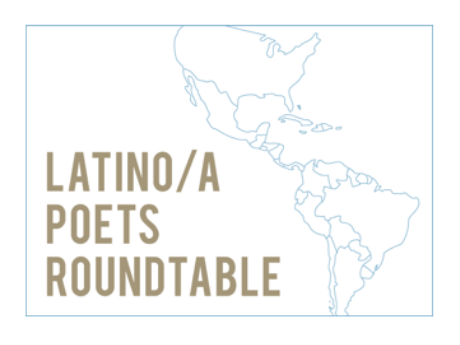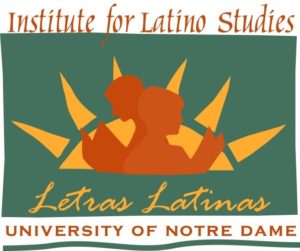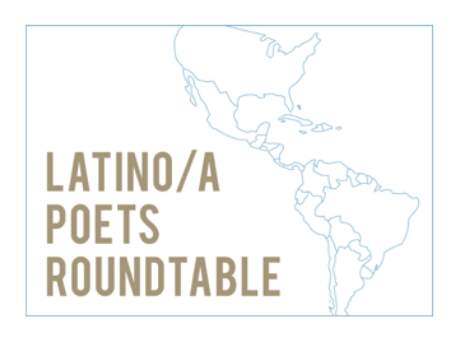Latino/a Poets Roundtable
Introduction to Latino/a Poets Roundtable

At its core, Latino literature is about the tension between double attachments to place, to language, and to identity.
Thus wrote Ilan Stavans in his preface to The Norton Anthology of Latino Literature (W.W. Norton & Company, 2011). This "double attachment" he refers to indeed plays itself out among a number of the poets who agreed to tackle the questions (and probing follow-ups) posed by Maria Melendez—curator, convener and moderator of what I'll venture to call a seminal moment in the conversation surrounding Latino poetry, what "Latino poetry" might mean in the 21st century.
For my part, I found myself re-reading this gem by elena minor: "I am not apart from who I am. So as a Latina, everything I write is Latin@ literature."
If for Ilan Stavans the "tension between double attachments" is the "core," elena minor's statement envisions, in my view, the possibility that said "double attachment," for some Latin@ writers, may not exist. Another way of putting it: "double attachment" may be the name of another box some Latin@ poets will resist being placed in.
And yet, yes: language. Though I am a life-long speaker (and long-time translator) of Spanish, I do detect within me a tension in my crusade to champion poetry by U.S.-born Latinos and Latinas who write in English.
But Hope Maxwell Snyder, as you'll read, grew up in Colombia; she writes: "After moving to the US and embarking on an academic career, I continued to read Latin American and Spanish poets." Her conception of "Latino poetry," then, seems to have been, early on, Spanish-language based. It was important for me to read that.
But then again maybe it's this: Spanish is often used to unwittingly render us as Other in the country many of us were born, raised, and educated in. "You speak English really well," she said. Or: "I love it when you read your poems in Spanish: you should do that more often," he said, not realizing the unintended message: English doesn't really belong to you.
Above all, what I came away with by immersing myself in the dialogue that follows, is the confirmation of how various we are. We haven't read and been spurred by the same poets; the registers we deploy when articulating our truths range from plain-spoken, perhaps tinged with a certain tentativeness, to unabashedly direct and unapologetic, to a challenging erudition.
My advice, online reader: take your time. Read this discussion in more than one sitting, perhaps; return to it; re-read it. And savor, as I did, Maria Melendez's summation, her suggestions for the future—a future in which we, whether Latin@ or not, "elevate Latino poetry by insisting it be heard, read and discussed to the point where no one could possibly conceive of American literature without it." Indeed: the selection of Eduardo C. Corral as the winner of the 2011 Yale Younger Poets prize (a prize a Latino/a poet has never won until now)—is an encouraging step.
Letras Latinas is honored to collaborate with the Poetry Society of America (PSA). Special thanks to Rob Casper, therefore, are in order. And I would like to acknowledge, as well, PSA board member Kate Gale who, at the 2009 Book Fair in Guadalajara, Mexico (where the city of Los Angeles was the guest of honor), became a conscientious ally of Latino poetry. In some respects, this online roundtable is one of the fruits of that encuentro.
More Latino/a Poets Roundtable
Latino/a Poets Roundtable, part one
A roundtable conversation with poets Maria Melendez, Raina Leon, Hope Maxwell Snyder, Albino Carrillo, Felicia Gonzalez, Mark Smith-Soto, Blas Falconer, Juan Morales, Roberto Tejada, Emma Trelles, and elena minor.
Latino/a Poets Roundtable, part two
Part two of a roundtable conversation with poets Maria Melendez, Raina Leon, Hope Maxwell Snyder, Mark Smith-Soto, Juan Morales, Roberto Tejada, Emma Trelles, and elena minor.
Read Article

